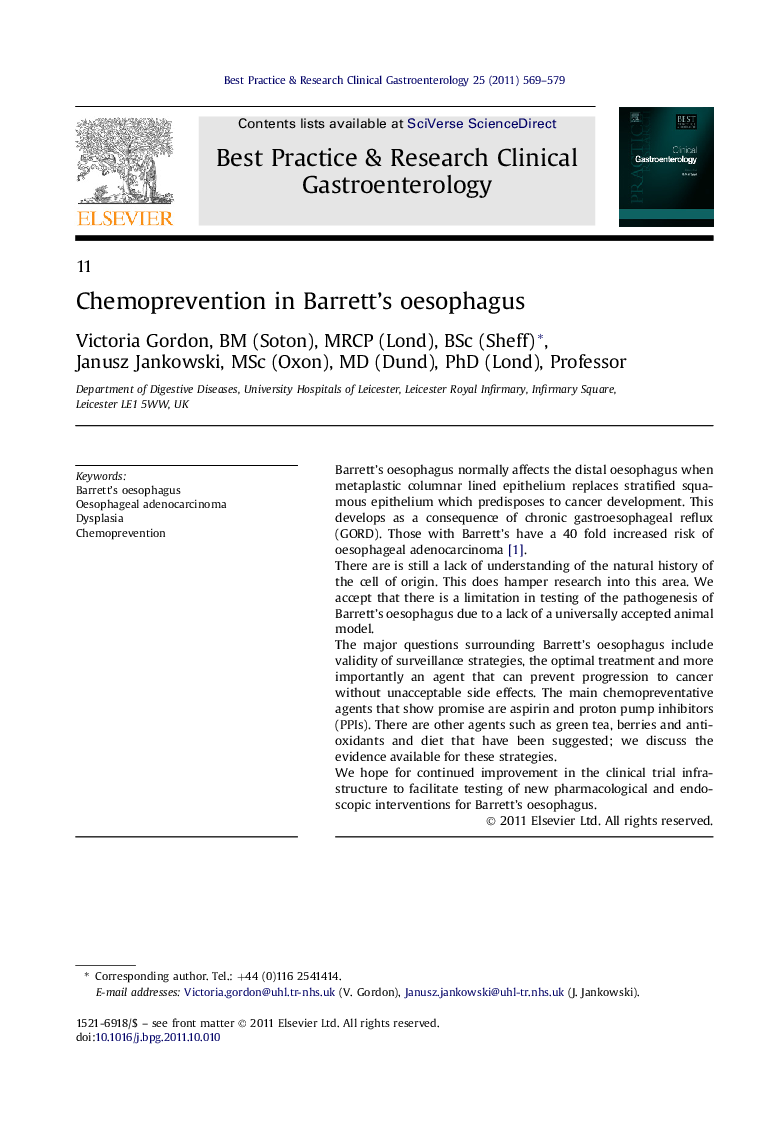| Article ID | Journal | Published Year | Pages | File Type |
|---|---|---|---|---|
| 3254220 | Best Practice & Research Clinical Gastroenterology | 2011 | 11 Pages |
Barrett’s oesophagus normally affects the distal oesophagus when metaplastic columnar lined epithelium replaces stratified squamous epithelium which predisposes to cancer development. This develops as a consequence of chronic gastroesophageal reflux (GORD). Those with Barrett’s have a 40 fold increased risk of oesophageal adenocarcinoma [1].There are is still a lack of understanding of the natural history of the cell of origin. This does hamper research into this area. We accept that there is a limitation in testing of the pathogenesis of Barrett’s oesophagus due to a lack of a universally accepted animal model.The major questions surrounding Barrett’s oesophagus include validity of surveillance strategies, the optimal treatment and more importantly an agent that can prevent progression to cancer without unacceptable side effects. The main chemopreventative agents that show promise are aspirin and proton pump inhibitors (PPIs). There are other agents such as green tea, berries and antioxidants and diet that have been suggested; we discuss the evidence available for these strategies.We hope for continued improvement in the clinical trial infrastructure to facilitate testing of new pharmacological and endoscopic interventions for Barrett’s oesophagus.
